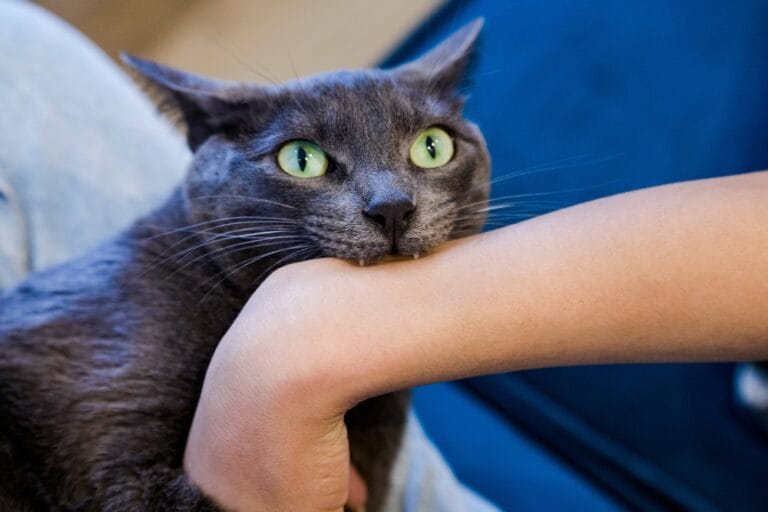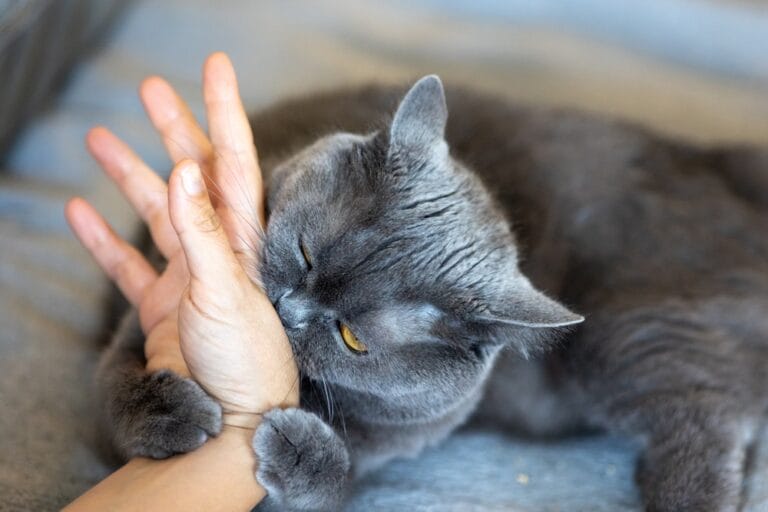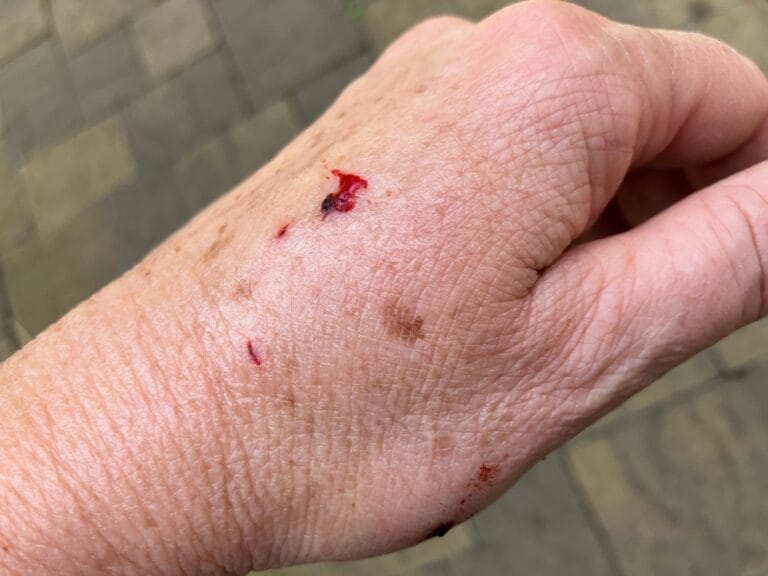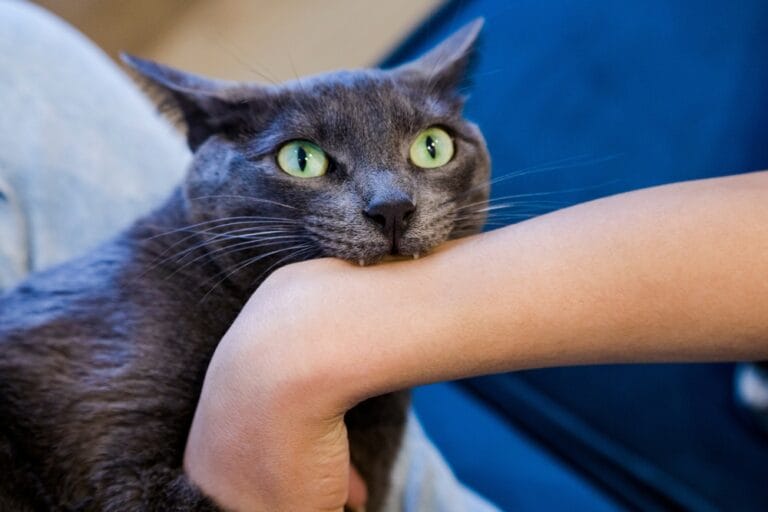
Introduction
Let's be honest—cats are adorable little weirdos. One minute they're curled up like fluffy angels on your lap, and the next they're giving you a surprise nibble that leaves you wondering, “What just happened?” If your cat has ever bitten you, either playfully or unexpectedly, you're not alone—and there's usually a reason behind it.
Understanding why cats bite isn't just about curiosity—it helps you build a stronger, healthier relationship with your feline friend. So, let's dive into what these mysterious little love bites might really mean.
Common Reasons Cats Bite
Playfulness
Cats are natural hunters. Even though your cat probably never has to hunt for food, those instincts still run deep. During playtime, you might notice your cat getting super zoomy, their tail twitching, and eyes wide with excitement. That's when the biting might start.
Play Aggression in Kittens and Adults
Kittens especially are bitey little creatures. They explore the world through their mouths and paws. But even adult cats can get a little rough when the play gets exciting. If your cat bites you gently but doesn't break the skin—and maybe even follows it with a bunny-kick—it's likely just playful energy spilling over.
How to Identify Playful Bites
Playful bites are:
- Usually gentle
- Not accompanied by hissing or growling
- Often part of an interactive game
If this sounds like your cat, congratulations—you're their favorite toy. But it's smart to redirect this behavior to actual toys instead of your fingers.
Love Bites
This one always surprises people: yes, cats bite out of love. Weird, right?
When Affection Gets a Little Too “Sharp”
These nips usually happen when you're petting your cat and everything seems perfect—then CHOMP. It's not hard or angry, just a quick “Hey, I love you but that's enough.” Samantha Bell, a cat expert, puts it well: “I'm enjoying this interaction, but it's becoming too much for me. I'm nearing my limit.”
How Cats Express Emotional Bonding
It's similar to how kittens nibble on their siblings or mom—it's their way of bonding. So if your cat gives you a soft bite while purring or cuddling, it's a feline compliment.

Overstimulation
Yes, cats can absolutely get “touched out.” Ever feel like you've had too much socializing? Cats do too.
Recognizing Signs Before the Bite
Watch for:
- Tail flicking
- Ears flattening
- Skin twitching
- Sudden tenseness
These are all your cat's way of saying, “Back off, buddy.”
How to Prevent It from Happening
Keep play and petting sessions short and sweet. Pay attention to their body language, and give them a break before they hit their limit.

Fear or Stress
Biting is often a last resort defense mechanism when a cat is frightened.
Situational Anxiety in Cats
Stressors can include:
- Loud noises
- Strangers
- New environments
- Other pets
Defensive Biting as a Last Resort
When a cat feels cornered or threatened, biting is their way of saying “I need out of this situation, NOW.”
Pain or Discomfort
Sometimes, a bite is your cat's cry for help.
Health-Related Causes of Biting
If your cat starts biting suddenly or seems more irritable than usual, something may be wrong physically.
When to See a Vet
Watch for other symptoms like:
- Lethargy
- Loss of appetite
- Hiding more than usual
It's best to get your furball checked out to rule out injury or illness.
Territorial Behavior
Cats take their turf very seriously.
Why Cats Protect Their Space
From that cozy corner of the couch to the litter box, cats like knowing what's theirs.
Recognizing Territory-Driven Aggression
Territorial bites may happen when:
- Another animal intrudes
- You move their stuff
- You invade their personal “bubble” too suddenly
Hunger or Attention-Seeking
Some cats “ask” for things with their teeth. Strange, but true.
Bites as Communication Tools
If your cat bites you and then heads toward the kitchen or starts meowing, you've just been demanded. They're saying, “Feed me now, human.”
How to Respond Appropriately
Redirect the behavior. Reward them when they don't bite to ask for things.
Biting in Young Cats and Kittens
Kittens are like toddlers with sharp teeth—they learn by experimenting.
Normal Development Behavior
It's common for young cats to bite during play. But don't let it become a lifelong habit.
Setting Boundaries Early On
Teach kittens early that hands and feet are not toys. Use string toys or plush mice instead.
How to React When Your Cat Bites You
Immediate First Aid Steps
- Wash the area with soap and warm water
- Apply antiseptic
- Cover with a sterile bandage
When to Seek Medical Help
If the bite breaks the skin and starts swelling or gets red, see a doctor. Cat mouths carry bacteria that can cause serious infections.
What Not to Do After a Bite
Don't yell, hit, or punish the cat. It only makes things worse and damages your bond.
Preventing Cat Bites in the Future
Learning Feline Body Language
Know your cat's signals. Twitching tails and flattened ears mean “enough.”
Creating a Bite-Free Environment
- Provide scratching posts
- Rotate toys to keep playtime fresh
- Offer hiding spots to reduce stress
Training Tips for Long-Term Behavior
Use positive reinforcement—treats, praise, toys—to encourage gentle play.

The Emotional Language of a Bite
Cats don't have words, but they have teeth—and sometimes, that's their way of talking.
Understanding the Context
Pay attention to when and how the bite happens. That tells you everything.
Strengthening the Human-Cat Bond
Respecting their limits and needs makes your relationship stronger, safer, and way more loving.
Conclusion
If your cat bites you, it doesn't automatically mean they're mean or aggressive. More often than not, it's their quirky way of communicating—whether it's to play, show affection, or signal discomfort. By learning their language and responding with patience and love, you'll not only avoid future bites but also deepen your bond with your whiskered companion.
FAQs
Q1: Why does my cat bite me gently while purring?
A: It's often a “love bite,” your cat's way of saying, “I like this—but don't overdo it.”
Q2: Can I train my cat to stop biting completely?
A: You can't remove all instinctive behaviors, but you can redirect them with toys and training.
Q3: Do certain breeds bite more than others?
A: Some high-energy breeds like Bengals or Siamese may be more prone to play-biting, but personality matters more than breed.
Q4: What toys help reduce biting behavior?
A: Wand toys, kickers, puzzle feeders, and interactive play objects work wonders to channel biting energy.
Q5: Is biting ever a sign of serious illness?
A: Yes. If biting is new or aggressive, it might indicate pain or a medical issue—get your cat checked by a vet.













